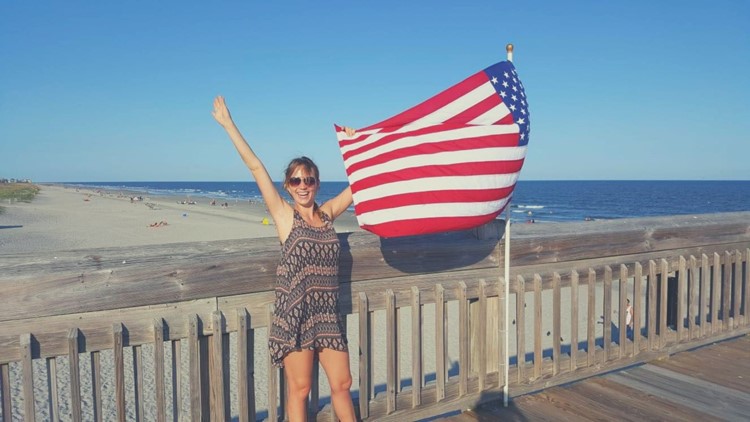CONTENT PROVIDED BY GO AU PAIR
On July 18, 2019, the court in Colorado officially approved a settlement for the class action lawsuit, Beltran v. Interexchange, wherein Plaintiffs claimed that Go Au Pair and 14 other sponsor agencies had colluded to fix Au Pair wages.
The settlement, which has been agreed to by all parties, releases Go Au Pair and the other designated Au Pair program sponsors of all claims related to the lawsuit.
Go Au Pair has entered into the Settlement to eliminate the burden, expense, uncertainty, risk of further litigation and delay of reaching a jury decision.
The settlement creates a $65.5 million fund, of which the Au Pairs’ lawyers will be paid over 35%.
With respect to how the program is operated, the settlement only requires that sponsors make clear that Au Pairs and Host Families are free to agree to compensation higher than the legally applicable minimum stipend. This has been Go Au Pair’s policy since its inception in 1989.
The Au Pair program is very successful and popular among both Au Pairs and Host Families. Most recently, in 2017 as part of the annual audits performed by all agencies, 93% of the 1,000+ Au Pair respondents and 91% of the 1,000+ Host Family respondents reported they would recommend the program to a friend.
According to the State Department:
“the viability of the au pair program is a quintessential federal interest. The program is a valuable tool of U.S. foreign policy. For over 30 years, the program has brought young people from other countries to the United States; immersed them in the home life of an American family; enabled them to continue their education at a local college or university; and allowed them to return home as unofficial ‘ambassadors’ for the United States.”
Lawsuit Claims & History
Plaintiffs claimed that program sponsors colluded to fix the Au Pair stipend at an illegally low rate. They also claimed that Au Pairs should be paid according to state minimum wage laws, and asserted that the Department of Labor should regulate the program instead of the Department of State.
However, there is no evidence of collusion or unfair pay. According to the State Department, “Sponsors have long informed prospective host families and au pairs that the required weekly stipend is based on the federal minimum wage, less a credit for room and board.”
The minimum stipend of $195.75 per week is calculated based on the federal minimum wage of $7.25/ hour, at 45 hours of childcare, less 40% for room and board. Families are also required to pay up to $500 in tuition money for their Au Pair’s educational requirement.
Much of an Au Pair’s living expense is covered by the Host Family. Because of the nature of this cultural exchange program, the Au Pair is seen as a member of the family. This is an important aspect of the Au Pair program, and a huge contributor to its success.
Au Pairs Objected to the Lawsuit
Au Pair program sponsors argued against the suggestion that the Department of Labor should regulate the program. Labeling Au Pairs strictly as employees could undermine the unique relationship between the Host Family and Au Pair, as well as the cultural exchange objective of the program. Several Au Pairs objected to the lawsuit for that reason. Eva, a former Au Pair from Germany, submitted a formal letter of complaint to the court, stating, “When au pairs are treated as employees rather than family members, will they be able to experience American family life?”
She explained:
“The au pair program focuses on cultural exchange and should therefore be treated as a cultural program rather than as an employment relationship… Becoming an au pair is a unique opportunity that provides a young person with a free plane ticket to their dream country, a home (rent free, including meals), a support system (host family, agency staff), some education (paid for mostly by the host family), and some money.”
She also expressed concern, saying, “Their demands and claims will not help to solve the problems discussed in the class action… Rather, the practices suggested in the claim will reshape the relationship between au pair and host family from family-focused to employment relationship.”
A shift like this could have deeply impacted the way a Host Family and Au Pair bond with one another. Families often say this is a closer and more meaningful bond than any other childcare arrangement they’ve tried in the past (except maybe grandma and grandpa).
Eva wasn’t alone in expressing concern about the lawsuit. Several other Au Pairs expressed similar worries.
Sally, who was an Au Pair in the U.S. from 2014-2015, says of her experience, “it was definitely worth it... my host family made me feel like I am part of the family.”
She explained that her stipend, plus free food, use of the family car, a free vacation with her Host Family, and experiencing U.S. culture, seemed like huge compensation for someone with no degree or professional certification in childcare.
“I just hope that many young people get the chance of living in a foreign country, the possibility to learn things for life and not just be a worker but also a member of a family,” Sally said.
In a formal objection letter, an Au Pair named Jan said, “Being an Au Pair in a foreign country is for the most part an experience, not a job.”
“The cultural aspect clearly outweighs the relevance of compensation,” Eva agrees. “All of my favorite memories and experiences during my au pair year include my host family, their warmth, friendliness, kindness, interest in my life, and willingness to help me learn and grow. None of them include my stipend.”
Settlement
Go Au Pair believes the settlement is fair, reasonable & adequate. By agreeing on the settlement, Go Au Pair is able to avoid additional legal costs, risks and delay of trial and appeals.
The Plaintiffs’ attorneys will receive attorneys’ fees of $22.93 million (35% of the $65.5 million settlement fees) plus $3.35 million in expenses. The Plaintiff’s lawyers will be paid on average $1,450/hour, approximately 2.3 times higher than their hourly billing fees.
About 160,000 Au pairs were identified as having the potential to receive money. Roughly 9,500 of those Au Pairs submitted claims by the May deadline. The average recovery for an Au Pair who filed a claim is estimated to be around $3,500 under the court-approved settlement allocation plan.
Au Pair Scholarship Fund to be Created by Sponsors’ Monies
Remaining settlement funds will be used to create an Au Pair Scholarship fund to benefit Au Pair class members. The scholarship fund will be administered by the Institute of International Education (IIE).
Go Au Pair is committed to helping Host Families and Au Pairs cultivate the best cultural exchange experience possible. Click here to learn more about the program.
THIS ARTICLE INVOLVES COMMERCIAL CONTENT. THE PRODUCTS AND SERVICES FEATURED APPEAR AS PAID ADVERTISING. FOR MORE INFORMATION, EMAIL US.
COLORADO & COMPANY IS A PART OF 9NEWS AND FEATURES COLORADO EVENTS, COMPANIES, BUSINESS PEOPLE AND OTHER OTHER GUESTS FROM AROUND THE COUNTRY.



